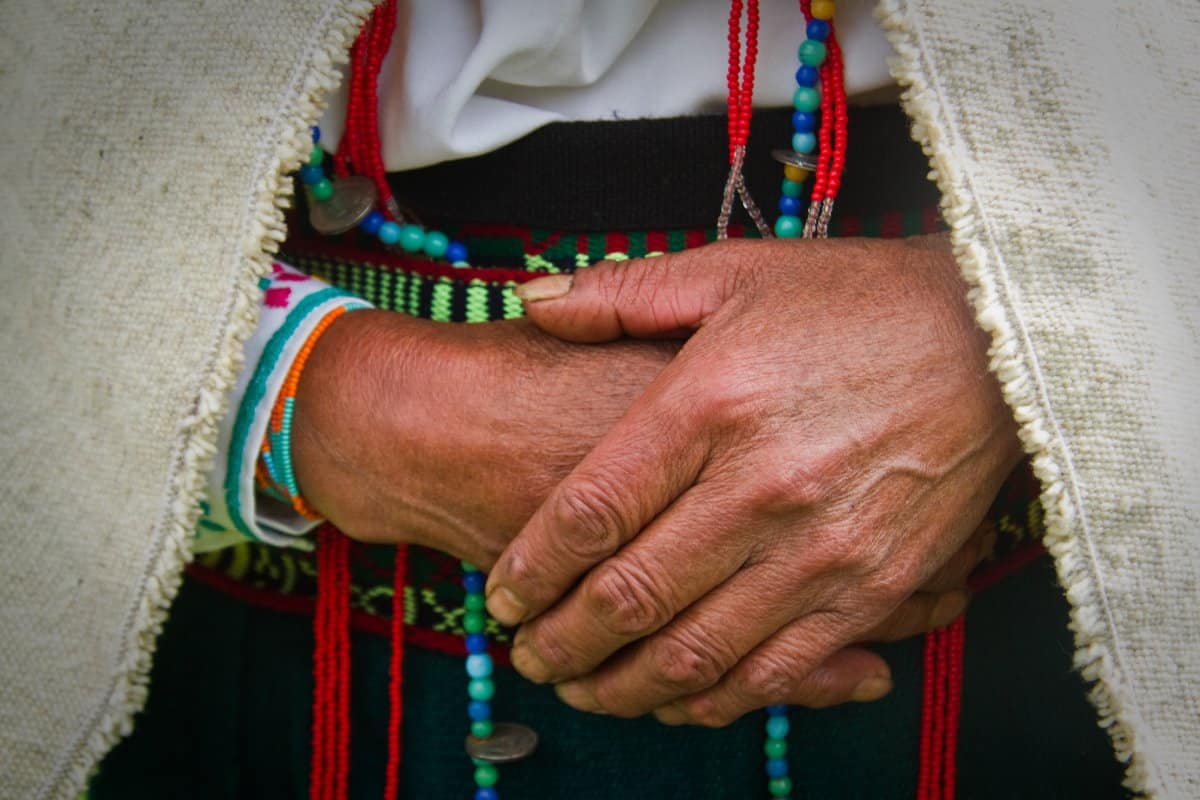In a world teeming with fast-paced technology and ever-changing societal norms, the wisdom of indigenous traditions offers a grounding perspective on sustainability, community, and self-awareness. These 25 practices not only enrich our understanding of diverse cultures but also provide timeless insights applicable to modern living. Here’s how we can integrate these ancient wisdoms into our everyday lives.
#1. Community-Based Decision Making

Indigenous communities often make decisions through consensus rather than hierarchy, emphasizing the importance of each voice. Adopting this in our local communities and meetings can foster a more inclusive environment.
#2. Land Stewardship

Many indigenous cultures practice a profound respect for the land, viewing it as a source of life, not a resource to be exploited. We can honor this by supporting conservation efforts and sustainable practices in our own use of natural resources.
#3. Herbal Medicine

Utilizing the healing properties of plants is a common practice in indigenous traditions. Incorporating herbal remedies into our health routines can connect us with natural healing methods and reduce reliance on pharmaceuticals.
#4. Storytelling for Preservation

Storytelling is crucial in passing down knowledge and preserving history in many indigenous cultures. Sharing stories within families and communities can strengthen our cultural heritage and personal identities.
#5. Circular Economies

Many indigenous communities operate on economies of reciprocity and sharing, which can inspire us to consider more sustainable economic practices that focus on community wealth rather than individual gain.
#6. Seasonal Eating

Indigenous diets often revolve around seasonal foods, which supports local agriculture and reduces the carbon footprint associated with importing food. Adopting a seasonal diet can reconnect us with local food systems and rhythms of nature.
#7. Language Preservation

Language is deeply tied to culture and identity. Learning or revitalizing indigenous languages can help preserve these cultures and expand our own cognitive and cultural understanding.
#8. Restorative Justice

Instead of punitive measures, many indigenous communities focus on restorative justice, seeking to heal the individual and the community. Embracing these practices can lead to more compassionate legal and interpersonal conflict resolutions.
#9. Mindful Consumption

The practice of taking only what is needed is a common principle. This can inspire a more minimalist lifestyle, reducing waste and promoting sustainability.
#10. Connection to Wildlife

Indigenous knowledge often includes a deep understanding of local fauna and ecosystems. Engaging in local wildlife and habitat preservation projects can enhance biodiversity and ecological health.
#11. Meditation and Mindfulness

Practices of mindfulness and meditation are prevalent in many indigenous cultures. Integrating these practices into daily routines can improve mental health and emotional well-being.
#12. Traditional Crafts

Handicrafts like weaving, pottery, and carving are not only artistic expressions but also ways to maintain dexterity and mental agility. Learning these crafts can connect us with history and enhance practical skills.
#13. Oral Histories

Maintaining oral histories can provide a deeper understanding of our ancestry and community legacy. Recording or listening to the stories of elders can preserve these invaluable narratives.
#14. Eco-friendly Construction

Traditional housing in many indigenous cultures utilizes sustainable materials and methods that minimize environmental impact. We can draw on this knowledge to influence modern green building practices.
#15. Community Gatherings

Regular community gatherings strengthen bonds and ensure communal support systems. Organizing or participating in local gatherings can build stronger community networks.
#16. Star Navigation

The knowledge of navigating by the stars is a sophisticated practice that can teach us about astronomy and the natural world, offering a deeper connection to the universe.
#17. Water Conservation

Respecting and conserving water is central to many indigenous teachings. Adopting water-saving techniques in our homes and communities can help preserve this vital resource.
#18. Cultural Festivals

Participating in or supporting cultural festivals can foster appreciation for diverse traditions and help sustain them for future generations.
#19. Indigenous Plant Knowledge

Using indigenous knowledge about local plants for food, medicine, and utility can enhance our self-sufficiency and respect for the environment.
#20. Intergenerational Learning

Learning from and teaching to different generations fosters respect and knowledge exchange, strengthening community ties and continuity.
#21. Solar Practices

Using the sun as a source of energy and timekeeping is an ancient practice that we can integrate into modern renewable energy solutions.
#22. Dance and Movement

Traditional dances are not only cultural expressions but also forms of physical exercise and storytelling. Engaging in or attending traditional dances can enrich our cultural experience and physical health.
#23. Communal Art Projects

Art projects that involve the community can enhance social bonds and celebrate collective creativity, similar to many indigenous mural and sculpture traditions.
#24. Fire Management

Traditional fire management techniques, such as controlled burns, have been used to manage landscapes healthily and sustainably. Adopting these methods can help in fire prevention and ecosystem management.
#25. Respect for Elders

Valuing the wisdom of elders and integrating them into daily community life is a hallmark of many indigenous cultures. We can honor this by involving older adults in decision-making and recognizing their societal value.
Rekindling Connections with Ancient Wisdom

By integrating these indigenous traditions into modern life, we not only honor the wisdom of those who came before us but also enrich our own lives with sustainable and meaningful practices. These activities connect us to the past, improve our present, and help secure a more thoughtful future.
The post Honoring Ancestral Wisdom: 25 Indigenous Traditions and Practices for Modern Living first appeared on Mama Say What?!
Featured Image Credit: Shutterstock / Fotos593.
For transparency, this content was partly developed with AI assistance and carefully curated by an experienced editor to be informative and ensure accuracy.





